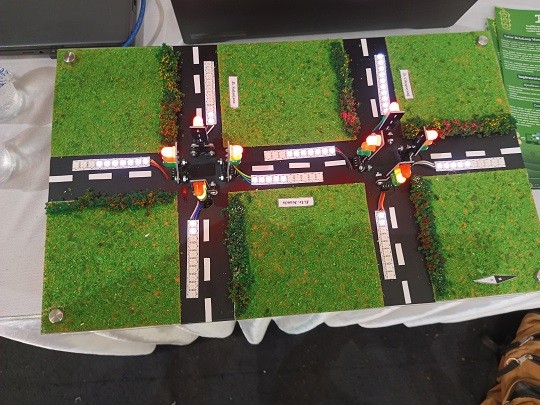Jakarta: Students of the Bandung Institute of Technology (ITB) Electrical Engineering Study Program created TraffiQ, a Traffic Signaling Tool (APILL) control system that uses the Reinforcement Learning method. TraffiQ was created to overcome the problem of traffic jams that often occur in the city of Bandung.
TraffiQ was developed by three students from the ITB Electrical Engineering Study Program, namely Kendrik Emkel Ginting, Jalu Reswara Wiradjanu, and Bella Sulistya Putri.
All three use the reinforcement learning method in TraffiQ. This is a method that allows the tool to learn independently.
This system uses the concept of giving rewards when it produces conditions that are expected in the surrounding environment, and giving punishment when it produces conditions that are not expected.
With this method, TraffiQ can continue to learn and optimize performance over time. TraffiQ has a number of excellent features that make it an attractive solution.
First, the system is able to efficiently control two adjacent intersections. TraffiQ can perform calculations efficiently so that the response time to changes in traffic conditions can be minimized by using a fast computation process.
Apart from that, TraffiQ also has a dual mode, which is automatic and manual. In automatic mode, the system will regulate traffic independently based on conditions measured by sensors installed on the road.
However, if manual intervention or adjustment is required, the system can also switch to manual mode easily. The last feature, which is TraffiQ's advantage, is the ability to manage the flow of vehicles based on traffic counting.
This system can adjust the duration of the green or red light on APILL according to the detected traffic density by using data on the number of vehicles passing at a time.
One of the founders of TraffiQ, Jalu, hopes that this innovation can reduce traffic jams that often occur in Indonesia. He also hopes to help improve traffic efficiency in various regions.
"It is hoped that with TraffiQ, the public can feel the benefits in reducing travel time and improving the quality of life," said Jalu.
Cek Berita dan Artikel yang lain di Google News
FOLLOW US
Ikuti media sosial medcom.id dan dapatkan berbagai keuntungan



















